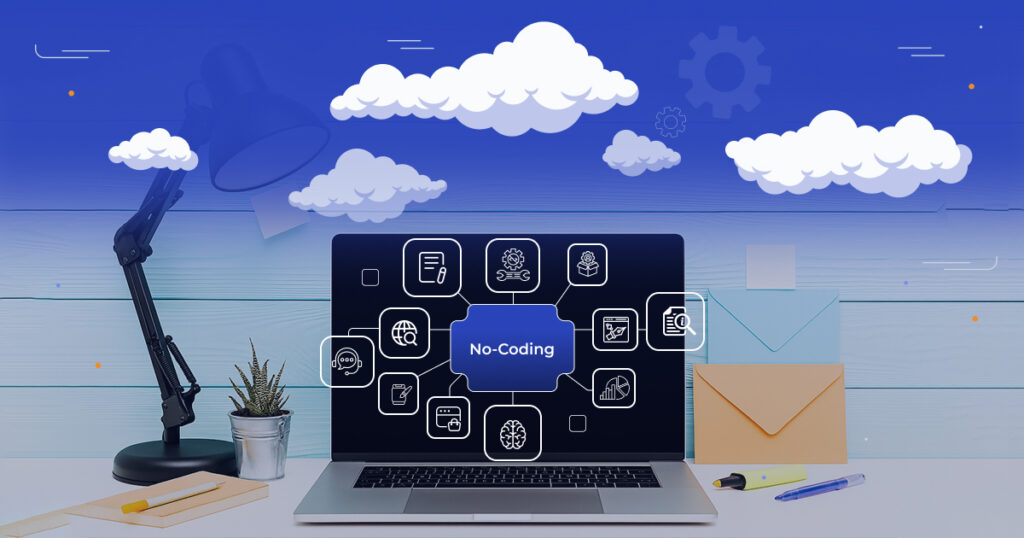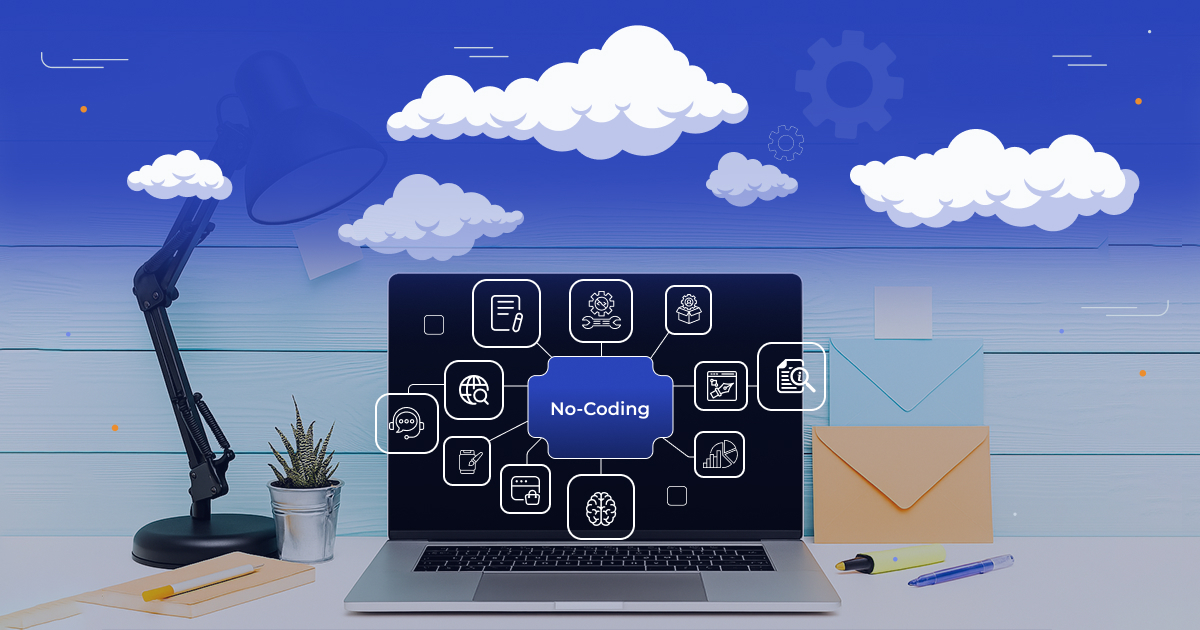After sharing my journey about how I made my first $100 on Fiverr as a beginner, I realized there was something essential I hadn’t covered yet; the exact services I offer. I kept getting asked about the skills needed to thrive in the tech world, and that’s when it hit me.

Most people think they have to be highly technical, like knowing how to code, to succeed. But that’s not the case at all! So, I decided to create this post to clear up the confusion and share the no-code tech skills that can help you land amazing opportunities without needing to write a single line of code. Because let’s face it, how can you thrive in tech if you don’t have a skill people are willing to pay for?
And let’s face it, not all skills are created equal. Some are in much higher demand than others, even in the tech world. So, I decided to dive into some research, alongside my personal experience, and compile a list of the 11 top no-code skills to learn that can help you start earning money from anywhere.
The best part? All of these skills require no coding at all. I’m here to show you that you don’t need to be a developer or programmer to land high-paying remote gigs. There are countless opportunities out there for remote workers, whether you’re a creative, a marketer, or a communicator, and you can tap into them without writing a single line of code.
That said, let’s dive in!
Technical Writing
Technical writing is about taking complex ideas and making them simple and understandable through writing. It’s a great fit for people who enjoy learning new concepts and explaining them to others.
As a technical writer, you might create user manuals, guides, and FAQs across various industries like tech (where it is in high demand), healthcare, or finance. You could collaborate with developers, engineers, or marketing teams, depending on the field. For example, in tech, you might work closely with developers to break down software or cloud computing concepts.
You don’t need coding skills to become a technical writer, but having some knowledge of the industry you’re working in (whether it’s tech or healthcare) can give you a competitive edge. It’s a role that thrives on clear communication and an understanding of complex ideas.
UI/UX Design
UI/UX design remains one of the top no-code tech skills to learn, and it’s not slowing down. As companies prioritize user experience, they need professionals who can create intuitive, visually appealing interfaces.
If you’re creative, you’ll find this role exciting because your work directly impacts the final product. UI/UX designers ensure seamless, engaging experiences, whether for apps or websites.
You don’t need coding skills for this role. While you’ll collaborate with developers to ensure your designs are implemented, the focus is on understanding user behavior and crafting functional, beautiful interfaces. You’ll work with tools like Figma, Sketch, or Adobe XD, and there are plenty of courses available on platforms like Coursera and Skillshare to help you get started.
Product Management
Product managers are often seen as the captains of a ship. They oversee the entire process of creating a product, from start to finish, ensuring that it meets user needs while also aligning with business goals. Some of today’s biggest CEOs, like Sundar Pichai of Google and Alphabet, and Neal Mohan of YouTube started out as product managers.
Product management is one of the most in-demand and high-paying tech skills today, and it’s no surprise. With more companies launching tech products, the role of a product manager has become highly competitive but don’t let that discourage you. As long as you focus on mastering the role, the opportunities are endless.
A successful product manager needs strong communication skills, as they work with multifunctional teams from design and development to marketing and sales and must align everyone’s goals to create a successful product. It’s a skill that takes time to learn, and while a degree or certification from a recognized body is often required, the payoff is worth it.
Social Media Management
Social media is a critical marketing tool for businesses, and companies are constantly on the lookout for talented individuals to manage their profiles. As a social media manager, your job is to create, schedule, and engage with content across various platforms, including Facebook, Instagram, Twitter, and LinkedIn.
What’s great about this role is that it obviously doesn’t require coding, just creativity and an understanding of social media trends. You’ll need to keep up with the latest updates on platforms and know how to use tools like Hootsuite, Buffer, and Canva to streamline your work.
With businesses increasingly relying on social media for visibility, it’s a great time to get into this field. Start by offering your services to small businesses or personal brands, and work your way up.
Graphics Design
Graphic design is one no-code tech skill that has always been in high demand. If you have an eye for design and creativity, this is a skill worth exploring. There’s always a need for graphics, whether for social media, website layouts, or print materials.
The best part? You don’t need to be an expert in Photoshop to start earning. Tools like Canva make it easy for beginners to create professional-looking designs. Plus, there are plenty of free tutorials available to help you sharpen your skills.
To land your first jobs, all you need is a portfolio. Include examples of your work, personal projects, or even volunteer work for local businesses. A strong portfolio is key to showing potential clients what you can do. Freelance platforms like Fiverr, Upwork, and 99designs are great places to find your first paying clients.
Virtual Assistance
Virtual assistance is one of the top no-code skills to learn this year, and the demand for virtual assistants is skyrocketing right now. You don’t need a specialized skill set to get started, making it an accessible role for many. Companies, businesses, and teams rely on virtual assistants to manage administrative tasks such as scheduling, emails, customer inquiries, and more.
To succeed in this role, all you need is a knack for organization and communication. Virtual assistants can work across almost any industry, offering a wide range of opportunities.
While specialized knowledge isn’t required, having some experience in the field you’re working in can give you a competitive edge. For instance, if you’re supporting a marketing team, familiarity with marketing tools can help you stand out.
Video Creation & Editing
In today’s world, where video has completely taken over online marketing, video editing has become an indispensable skill. If you’re good at it, you can earn a solid income. Every business wants to leverage video content in their marketing strategies, and as a remote video editor, imagine having multiple clients; five businesses paying you monthly for their video content. That’s the potential.
To get started, you don’t need to be a pro right away. There are plenty of resources, from free tutorials to paid courses on platforms like YouTube, Skillshare, and Udemy. Learning the basics of video editing software like Adobe Premiere Pro or Final Cut Pro is a great starting point, and as you get better, you can specialize in types of content like social media videos, commercials, or product demos.
Cybersecurity Analyst
Cybersecurity is among the top 3 most in-demand no-code tech skills of 2025, and for good reason. With new technologies emerging daily and AI expanding, the potential vulnerabilities for cyber theft are growing. The annual cost of cybercrime is predicted to exceed $23 trillion by 2027, up from $8.4 trillion in 2022, according to U.S. Deputy National Security Advisor Anne Neuberger. That’s why companies are desperately seeking cybersecurity professionals.
As a cybersecurity analyst, you’ll monitor network traffic for suspicious activity, analyze potential security breaches, and mitigate risks. You might also be responsible for installing firewalls and antivirus systems, as well as educating teams on basic security best practices.
Getting started in cybersecurity is more achievable than you might think. While a degree is helpful, you can gain certifications from platforms like Coursera-IBM offers a solid cybersecurity course. While many roles focus on working with security tools and scripts, having knowledge of Python or JavaScript can give you a competitive edge and help you work more efficiently.
Customer Support
Remote customer support roles have exploded in recent years as more companies offer services to customers globally. As a customer support representative, you’ll be helping customers with questions, complaints, and troubleshooting issues via chat, email, or phone.
Excellent communication skills, patience, and problem-solving abilities are key. You don’t need coding knowledge for this role, but it helps to be familiar with customer support platforms like Zendesk or Freshdesk.
Customer support roles often have flexible hours, making them ideal for those looking for part-time or full-time remote work.
SEO Specialist
SEO (Search Engine Optimization) is another top no-code skill to learn. As an SEO specialist, your role is to improve a business’s ranking on search engines like Google. You’ll analyze websites and implement strategies like keyword research, content optimization, and adding backlinks to boost organic traffic.
To excel in this role, you’ll need a strong understanding of how search engines work and be comfortable using tools like SEMrush, Ahrefs, and Google Analytics. SEO specialists also collaborate with content creators to ensure that the website’s content is optimized to meet search engine algorithms, driving more traffic and improving online visibility.
Copywriting
Copywriting is actually the skill that allowed me to make my first $100 online. If you can craft words that grab attention, copywriting could be your ticket to serious income. This skill involves creating persuasive content that encourages people to take action whether it’s making a purchase, signing up for a newsletter, or downloading an app.
Copywriting is in demand across various industries. From eCommerce product descriptions to email campaigns, businesses always need words that sell. The best part? You don’t need to be a marketing expert to get started.
Start by practicing writing blog posts, email copy, or social media ads. Free courses on platforms like Coursera and Udemy can help you master copywriting techniques. With consistent practice, you’ll be landing paying clients before you know it.
Final Thoughts
There you have it! The top 11 no-code tech skills to learn for 2025. These skills don’t require any coding, yet they pay well and offer the flexibility of working from anywhere in the world. The best part? Many of these skills don’t take long to learn. In just a few weeks, you could be on your way to landing gigs and building a solid career remotely.
All you need is an excellent portfolio to showcase your abilities and some patience as you get started, but trust me, it’s worth it in the end.
If you stayed up till this point, you’re the real MVP! If you haven’t, be sure to check out this article: How I Made My First $100 On Fiverr As A Beginner.
Until next time!
Ciao!
